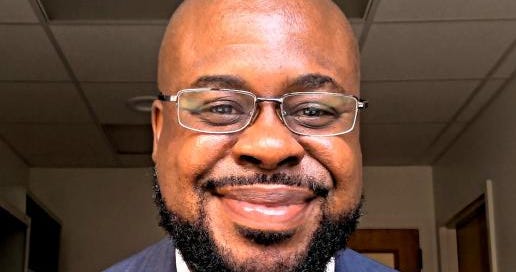Episode 12: Allegiance & Belonging with Professor Ray Block Jr.
How polling can help us check assumptions about patriotism and civic participation
Political polling and civic engagement are complex landscapes, particularly when viewed through the lens of racial dynamics and community organizing. Traditional understanding of political participation often falls short in capturing the nuanced reality of how different communities engage with the political system. This episode explores the multifaceted nature of civic involvement, challenging conventional wisdom and offering fresh insights into the interplay between identity, allegiance, and political action.
You can listen to this conversation here:
Allegiance and Belonging: Dual Forces in Political Participation
The concepts of allegiance to one's country and a sense of belonging within it play crucial roles in shaping political participation. These factors can significantly influence whether individuals engage in mainstream political activities or pursue alternative forms of civic involvement. For communities of color, the relationship between these elements can be particularly complex, often leading to diverse and sometimes unexpected patterns of political engagement. Understanding this dynamic is crucial for accurately interpreting and predicting political behavior across different demographic groups.
Protest: A Rational and Effective Tool for Change
Contrary to traditional views that often dismiss protest as merely an expression of discontent, recent research highlights its rationality and effectiveness as a means of driving social and political change. This shift in perspective is supported by case studies demonstrating how protest movements can alter political conversations and lead to concrete policy changes. Recognizing protest as a legitimate and potent form of civic engagement is essential for a comprehensive understanding of political participation in modern democracies.
The Evolution of Polling: Capturing Diverse Voices
The landscape of political polling is undergoing significant changes, driven by the need to better represent and understand diverse communities. Traditional polling methods have often fallen short in accurately capturing the perspectives of minority groups, leading to skewed perceptions of public opinion. Innovative approaches, such as those employed by organizations like the African American Research Collaborative, are working to address these shortcomings by developing culturally competent polling methods and focusing on community-specific research.
Community-Focused Research: A New Frontier in Political Science
There is a growing recognition within political science of the importance of community-focused research. This approach involves direct engagement with communities and grassroots organizers, providing a more nuanced and accurate understanding of political dynamics at the local level. By bridging the gap between academic study and on-the-ground realities, this research paradigm offers valuable insights that can inform both theory and practice in political science.
Bridging Academia and Activism: A Path to Effective Problem-Solving
This episode highlights the potential benefits of closer collaboration between academic researchers and community activists. By fostering dialogue and cooperation between these traditionally separate spheres, there is an opportunity to develop more effective solutions to social and political challenges. This approach not only enhances the relevance and impact of academic research but also provides valuable resources and insights to support grassroots organizing efforts.
Resources
Allegiance and Belonging Study
This study examines how feelings of allegiance to and belonging in America influence different forms of civic participation among various racial groups, particularly focusing on the experiences of Black Americans.
Google Civic Participation Study
You can watch a presentation of this research at the Personal Democracy Forum 2015
This study, conducted around 2016, used a ladder metaphor to evaluate people's levels of civic commitment, interpreting higher rungs as indicating greater civic participation.
African American Research Collaborative
This organization, where Ray Block works, focuses on conducting polling and research specifically targeted at understanding the opinions, experiences, and civic engagement of communities of color in the United States.
You can listen to this episode on Apple Podcasts:
Our Guest
Ray Block Jr., Ph.D., is senior research advisor for the African American Research Collaborative. He has led their research design on a range of polls, including research involving elections, health policy, and African Americans’ policy goals. Block is also the Brown-McCourtney Endowed Career Professor at the McCourtney Institute for Democracy and associate professor of Political Science and African American Studies at Pennsylvania State University. Previously, he was on the faculty at the University of Kentucky and the University of Wisconsin, La Crosse. Block received his B.A. in philosophy and political science from Howard University and his Ph.D. in political science from The Ohio State University.
Your Host
Farrah Bostic is the founder and Head of Research & Strategy at The Difference Engine, a strategic insights consultancy. With over 20 years of experience turning audience insights into effective strategies for B2B and B2C companies, Farrah helps business leaders make big decisions across various industries. Learn more at thedifferenceengine.co and connect with Farrah on LinkedIn.





